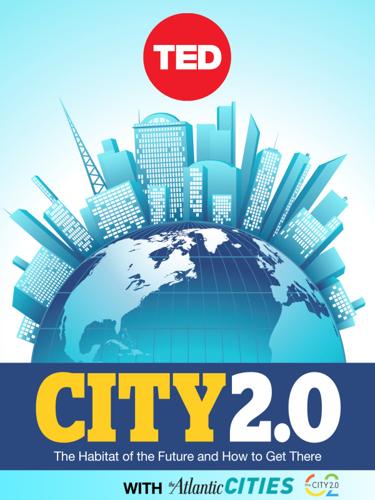
City 2.0: The Habitat of the Future and How to Get There
by
Ted Books
Published 20 Feb 2013
The rise of the so-called sharing economy has been chalked up to many things: Millennials rejecting car ownership, the environmentally conscious glomming onto the latest eco-trend, even broke urbanites who will want all their own stuff again as soon as the economy recovers. Ron Williams, CEO of online gear-lending outlet SnapGoods, admits that the sharing pioneers (himself included) enabled too many articles describing all of this as a precious curiosity: People are sharing whoopee-pie makers! On the Internet! With strangers! But as Singer’s kitchen illustrates, collective ownership in all its evolving forms constitutes less a fleeting fad and more an essential piece of how we’ll live in an increasingly dense, urbanized world. This is both a physical and economic reality. “Fundamentally,” Singer says, “if more people are living on the same square foot of land, and that square foot of land is worth more money, what are the consequences and how do we set up our society to deal with that?
…
City living, for all its allure, is expensive, but the sharing economy makes it possible for more people, whether they’re sharing a car because they can’t afford to own one, or a bike because they’ve got nowhere to store it. We’re also witnessing a shift toward sharing because of technology. The new tools include online payment models, network search tools, and identity verification systems that make trust at least somewhat possible among strangers. The Internet has essentially allowed us to expand the circle of people with whom we share. But even more fundamentally, the open-source culture of the Web has taught us how to share and made sharing a default of social interaction. “There’s some pretty good empirical evidence that people, in a sense, get in a habit of sharing,” says Lee Rainie, the director of the Pew Research Center’s Internet & American Life Project.
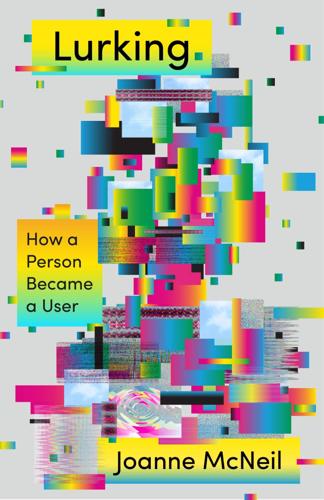
Lurking: How a Person Became a User
by
Joanne McNeil
Published 25 Feb 2020
Nice to e-meet ya!” Someone might find such an exchange amusing, but it strikes me as boundary-crossing. Even what I could see, outside her knowing, felt out of bounds. I couldn’t bring myself to click through her archive to see how that vacation went. It struck me as privacy I should honor as an internet stranger. It was not for me to riffle through her life online and attempt to construct a narrative. I was contented just to make this odd one-sided connection. I tossed the boarding pass away when I finished the book. Anyway, now I know the origins of this used paperback. That’s lurking. I don’t mean lurking as an act of reconnaissance, eavesdropping, or something sneaky.
…
We trusted one another to be alike in a certain way—American teenage girls, sometimes the odd Londoner or Kiwi—and any other details were spared. Maybe some of these young women did not appear to be women to the outside world, at least not yet. But how did we know the vast majority of our community weren’t, say, old men pretending, like so many internet stranger-danger magazine cover stories? Because we knew. Some things can’t be faked. Interiority can’t be faked. Still, the aspects of anonymity that forged our trust also let us off the hook and prevented us from recognizing where our community was deficient. I cannot confirm the identities of any of these young women, except for a handful who are my friends now and whom I have met in person, but thinking back, these were message boards for indie music and zine culture, late riot grrrl interests (predominantly white).
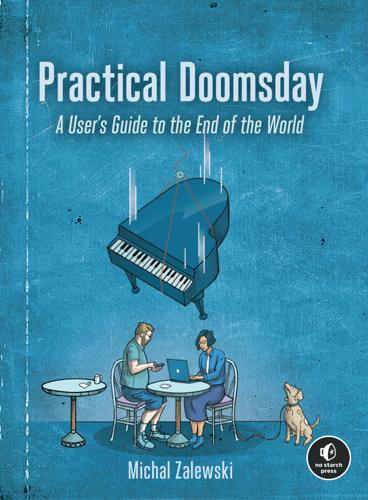
Practical Doomsday: A User's Guide to the End of the World
by
Michal Zalewski
Published 11 Jan 2022
The simplest way to level the playing field is to rehearse your reactions ahead of time, just as perpetrators gain experience through repetition. The goal is to learn the anatomy of a typical burglary or an online con, and memorize the best ways to respond. Of course, that’s not to say that every crime is the same. Every now and then, internet strangers or abusive ex-lovers devote considerable resources and skill to making the life of a specific victim a living hell. Other times, burglars get wind of the precious jewels in your safe or the hefty balance in your bank account, perhaps told by your distant relative or an unsavory friend. In such scenarios, prevention is the best defense; keeping mum about lottery winnings and tactfully disengaging from bitter fights is wiser than hiring bodyguards or sleeping with a loaded gun.
…
But in trying times, people almost always come together and find strength in local communities. It’s much better to be a part of a resilient group than a lone warrior trying to take on the world. Given the localized nature of most disasters, it’s also better if your group consists of neighbors, coworkers, and relatives, rather than a scattered collection of internet strangers who live hundreds of miles apart. Further, most disasters aren’t the end of the world. A week-long power outage is a fantastic opportunity to make friends and support neighbors in small ways; it would be a shame to barricade the door the moment the lights go out, anticipating that they might never come back on.
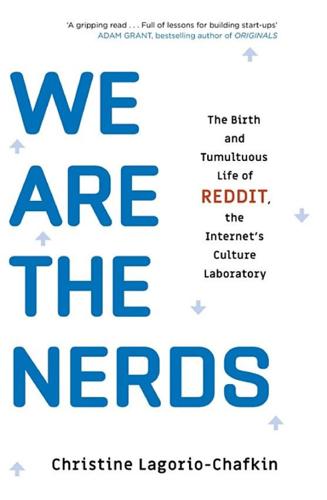
We Are the Nerds: The Birth and Tumultuous Life of Reddit, the Internet's Culture Laboratory
by
Christine Lagorio-Chafkin
Published 1 Oct 2018
TechCrunch wrote an article about the gift exchange, and McComas even spent some of his Christmas Eve doing television interviews. By the following year, 2010, Reddit Gifts had 17,079 participants from 102 countries—and 95 percent of the individuals who signed up sent a gift. Nearly half a million dollars had been spent sending presents from Internet stranger to Internet stranger. McComas got more ambitious. He added a new gift exchange for midsummer that Reddit dubbed “Arbitrary Day.” A book exchange followed. As his own family’s holidays became entirely consumed with managing the Secret Santa, McComas, who was still working a full-time job, knew his little project had become too big for him and Moreno to handle.
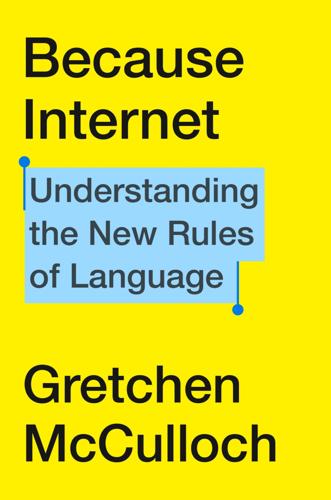
Because Internet: Understanding the New Rules of Language
by
Gretchen McCulloch
Published 22 Jul 2019
An article reminiscing about the early-2000s teen internet highlighted how it replicated offline social structures: friends would link their homepages in webrings or cliques, and decorate them with bright and pastel HTML tables and cute, tiny cartoon animal gifs. When this cohort did hang out with internet strangers, it was often on virtual-pet websites like Neopets and Petz.com, which journalist Nicole Carpenter fondly described as “a mix between Tamagotchi and Pokémon” that provided “a safe place for girls to play in an often unfriendly Internet.” There were waves of nostalgia when archivists scrambled to preserve GeoCities sites after Yahoo shut them down in 2009 and when AOL shut down AIM for good in 2017.
…
So later technology such as Usenet (1980), Listserv (1986), and public chatrooms would let you join as a normal person, browse topics, and add yourself to those that interested you, such as alt.folklore.computers, alt.usage.english, or alt.tv.x-files on Usenet, LINGUIST List (a listserv I’m still on), and #ham-radio or #StarTrek in chatrooms. Topic-based posting to internet strangers has remained around, in various formats. Blogs are themed around a particular person’s life or a more specific topic like cooking, travel, or careers, and sometimes develop community between strangers in the comments section. Multiplayer online games often include a chat function that lets you talk with strangers, or let you import your friends from an existing social network.

Irreversible Damage: The Transgender Craze Seducing Our Daughters
by
Abigail Shrier
Published 28 Jun 2020
They tunnel into YouTube, TikTok, Instagram, Reddit, and Tumblr, imbibing life advice from the denizens that await them. “If they’re questioning their sexuality, for example,” Ayad told me, “rather than giving it some time and seeing, okay, ‘Who do I develop a crush on? Do I want to hold this girl’s hand?’ ” members of Gen Z head for the internet. Uncountable strangers happily furnish sexual identity guidance. “That’s not necessarily the most helpful way to try and understand your own experiences of things.” Extensive daily internet use provides casual conversance with every sort of sexual fetish. They know what a “furry” is and have seen bondage porn.
…
A teenager may believe she is merely announcing herself an adult, but she’s also sending up a flare to actual adults who will immediately contact her and offer “support,” primed to take advantage. Send prom pictures in an email if you must, but don’t post them for the content-hungry eyes of internet strangers. Find some other way to stay connected with those you care about. 5. Consider Big Steps to Separate Your Daughter from Harm There is a common thread in several stories that I heard from parents who achieved a measure of success in helping their daughters back away from their new trans identities: these families went to great lengths to physically move their daughters away from the schools, the peer groups, and the online communities that were relentlessly encouraging the girls’ self-destructive choices.

Emails From an Asshole: Real People Being Stupid
by
John Lindsay
Published 31 Mar 2010
I thought I was clear before but let me repeat myself. I don’t want you at my party! One of my favorite things to do is to show parents that they really shouldn’t be looking on the internet for people to deal with their children. Hopefully, this woman will think twice before saying “I’ll just look on the internet for a complete stranger to hang out with my children for an hour!” If I were the parent, however, I would have jumped on the opportunity to have a badass Vietnam veteran tell stories and traumatize the neighborhood kids. The neighbors would probably never ask me to host a party again. Tyrone’s Dog-Sitting Service Tanya’s original ad: DOG WATCHER WANTED!
…
For that price, he better repave the driveway in gold when he is finished shoveling. Operation: Soccer Escort This is a pedophile or serial killer’s wet dream. It was also a gold mine for me. I look for stupidity in the ads, and nothing is more stupid than a mother who is looking on the internet for a complete stranger to drive her 10-year-old daughter home every day. Kate’s original ad: I am in need of a reliable and SAFE driver to take my 10-year-old daughter home from after-school soccer practice starting in September and ending in late November. She needs to be taken from school in Exton to home in Bryn Mawr.
…
I think Nick contemplated cursing me out again, but decided against it in case I was genuinely serious and actually had my kid write to him. New Relationship Abusive relationships can be rough. They can make you never trust another person again. But what better way to start a new relationship than to find a complete stranger on the internet? I apologize for the boring start of the email, but I thought it was necessary to gain this woman’s trust. Christina’s original ad: Is the right guy out there for me? Finally ended a long and abusive relationship and want to get my life back on track. Looking for a great guy who can treat me like a woman.

Delete: The Virtue of Forgetting in the Digital Age
by
Viktor Mayer-Schönberger
Published 1 Jan 2009
Whether, and to what extent, such additional transparency fosters democratic engagement, as well as improved election outcomes, is a hotly debated subject. See Stiglitz and Florini, The Right to Know. For a somewhat critical view, see Fung, Graham, and Weil, Full Disclosure. 9. For an early analysis, see Resnick and Zeckhauser, “Trust Among Strangers in Internet Transactions,” 127–57. 10. See, for example, Dellarocas, “Analyzing the Economic Efficiency of eBay-like Online Reputation Reporting Mechanisms”; Cabral and Hortacsu, “The Dynamics of Seller Reputation”; Gillette, “Reputation and Intermediaries in Electronic Commerce”; and Houser and Wooders, “Reputation in Auctions: Theory and Evidence from eBay,” 353–69. 11.
…
“Creating, Destroying, and Restoring Value in Wikipedia,” in Proceedings of the 2007 International ACM Conference on Supporting Group Work. Sanibel Island, Florida, Nov. 4–7, 2007. New York: ACM. 259–68. DOI5 http://doi.acm.org/10.1145/1316624.1316663. Proust, Marcel. In Search of Lost Time. New York: Modern Library. 2003. Resnick, Paul and Richard Zeckhauser. “Trust Among Strangers in Internet Transactions: Empirical Analysis of eBay’s Reputation System,” in Advances in Applied Microeconomics, Michael R. Baye, ed. Volume 11, 127–57. Amsterdam: Elsevier Science. 2002. Roberts, Alasdair. Blacked Out: Government Secrecy in the Information Age. Cambridge: Cambridge University Press. 2006.

Future Sex
by
Emily Witt
Published 10 Oct 2016
These technologies, which presented a certain possibility of freedom, revealed how little we demanded. In theory, I could behave as I wished. Without breaking any laws I could dress as a nun and get spanked by a person dressed as the pope. I could watch a porn starlet hula-hoop on my computer while I had sex with a battery-operated prosthetic. I could contact a stranger on the Internet, tell him to meet me at the north entrance of the Woolworth Building, tell him I would make myself known only if he arrived carrying three Mylar balloons referencing distinct Disney animated classics, and then, if he fulfilled my wishes, go to his place for sex. I could do all these things without having to wear a scarlet letter, get thrown in jail, or be stoned in public.
…
Still, the feeling of clicking through the 18+ disclaimer into the opening matrix was the one of turning on MTV in the mid-1990s, when music videos played most of the day and kept viewers captive in the anticipation of a favorite performer or a new discovery. Or maybe, to reach farther back in time, it recalled the early days of the Internet—the Internet of strangers rather than “friends.” The earliest chat rooms on CompuServe, back in the early 1980s, had been called “CB,” in honor of the communicative free-for-all of CB radio. Here Chaturbate had revived the form, with the same initials, and the same cacophony of ingenuity and perversion. Some people—most people, really—did not bother to provide constant masturbatory fantasy but instead would fund-raise or idly chat with their viewers in various attitudes of boredom or states of undress, with the occasional tit flash or Hitachi session to enliven the mood or fulfill the mandate of a high tipper.
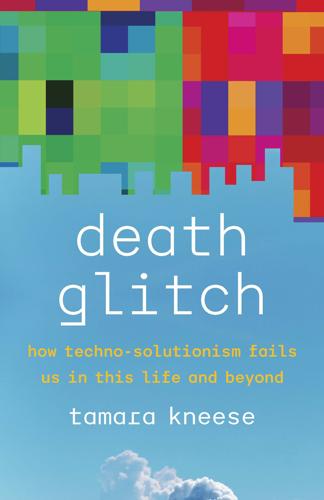
Death Glitch: How Techno-Solutionism Fails Us in This Life and Beyond
by
Tamara Kneese
Published 14 Aug 2023
Nancy Baym defined the “relational labor” of musicians who forged relationships with their audiences through social media platforms, an unremunerated but essential part of the jobs. Baym, “Connect With Your Audience!” Similar kinds of relational labor are done after a user’s death, as the dead person’s social networks continue to engage with platforms and various audiences, from close kin to internet strangers. But I am referring to an older, broader use of relational labor as a subset of affective labor. See Muehlebach, “On Affective Labor in Post-Fordist Italy.” 27. James, Race, Sex, and Class; Weeks, The Problem with Work. 28. Jarrett, Feminism, Labour, and Digital Media. Kylie Jarrett argues that the supposedly nonproductive aspects of digital labor, the digital equivalent of women’s domestic and reproductive work, are quietly intrinsic to the accumulation of capital. 29.
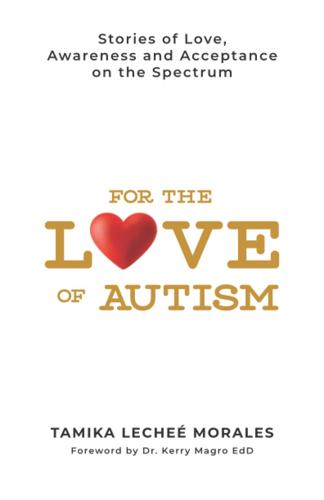
For the Love of Autism: Stories of Love, Awareness and Acceptance on the Spectrum
by
Tamika Lechee Morales
Published 23 Apr 2022
Email: andrew.arboe@autismdriving.com Social Media Facebook Driving with Autism: autisticdriving LinkedIn: https://www.linkedin.com/company/autismdriving Hashtag #ForgeYourPath FROM LOSS AND TRAGEDY TO JOY AND AUTISM Nicole Gottesmann is a stay-at-home mom and blogger on Instagram and has a Facebook page and YouTube channel called, For the Love of Gabe. “Unconditional love is the cure.” Sometimes it takes rock bottom, a sage yoga instructor, and strangers on the internet to lead you to love. Through love, I have learned more about what it means to live hopefully and with acceptance, even after tragedy. This story of unconditional love begins with my first pregnancy. I loved being pregnant. I was twenty-nine years old and ready for this new stage in my life.
…
You see, I didn’t know what it meant to have a child with autism at the time and I was convinced you were like this boy in my dream. Back then, few knew what autism was, except as something to be afraid of. People are afraid of the unknown, and that is why I find it important (and love!) to share our experiences with strangers on the internet. I want the world to know you and all of the other kids like you. I want them to know that you belong. You are worthy of love, friendship, and a fulfilling future. We have a lot of work to do to change the perception of people with autism and to get you the accommodations you deserve, but I can already see the perception shifting.

Please Don't Sit on My Bed in Your Outside Clothes: Essays
by
Phoebe Robinson
Published 14 Oct 2021
So me saying that I would hypothetically hook up with a celebrity I have ZERO ACCESS to, by the way, is not a sign I’m trying to cheat, but an expression of fact. The sky is blue. 2 + 2 = 4. I would toss my NuvaRing in the trash if I was about to bone Lenny Kravitz. All straight-up facts. And if these internet strangers are too busy to write on my posts about hot celebs, they’ll just tag British Baekoff in the comments as if to say, “Have you seen what this bitch is out here doing?” The answer is: yes. Like I said, life is long and so are relationships, so me spending twenty minutes waxing hoetic about a famous sexy dude is twenty minutes that my boyfriend has without me in his grill, asking him to do unpaid IT work around our apartment.

Everything's Trash, but It's Okay
by
Phoebe Robinson
Published 15 Oct 2018
Like many people who were rattled by this latest in a long line of gut-wrenching deaths, I turned to friends and family, devoured as much news about these murders as possible until it was too much to stomach, and got online. I simply posted a ten-second video loop of #BlackLivesMatter in a rolling crawl. Within minutes, a white guy troll who was probably just searching the hashtag and spewing hatred on people’s Instagram pages wrote: “Dumb cunt.” A couple of internet strangers tried to silence him, and after a while, I just deleted all traces of this discord because infighting was not the purpose of the post. I was deeply sad and was using those three little words to keep myself from drowning in despair, and I was immediately made to feel as though I wasn’t even allowed that.
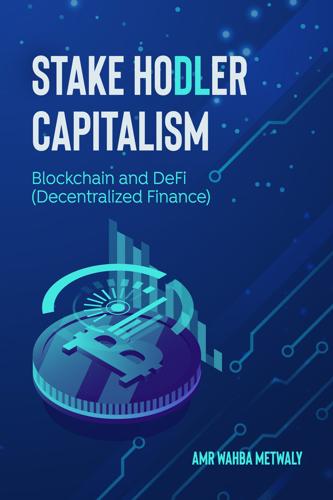
Stake Hodler Capitalism: Blockchain and DeFi
by
Amr Hazem Wahba Metwaly
Published 21 Mar 2021
The most obvious example is shorting the market (to make a profit when the price drops). It's also great for those who want to stake tokens and at the same time engage in trading in the marketplace. Don't You Need A Lot of Money To Run A Bank? This is true, and on DeFi, this money comes primarily from strangers on the internet. That's why it provides a smart way for these decentralized banking apps to attract empty HODLers. Liquidity is a major issue for all of these products. In other words, how much fund was staked in the smart contract? For some product types, the product experience is best with liquidity.
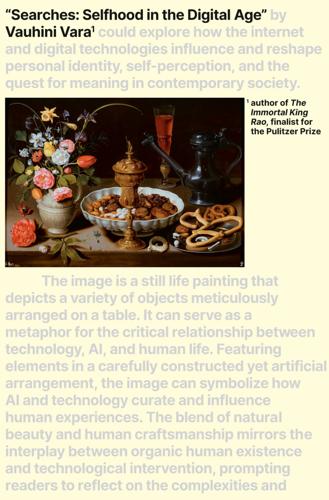
Searches: Selfhood in the Digital Age
by
Vauhini Vara
Published 8 Apr 2025
She rolled up her shirt a little and indicated her stomach. He reached out with his fingertip and pressed it into her skin. Then we said we were leaving. We went inside and hid in the girls’ bathroom until we could be sure he’d given up. A neat ending to this anecdote would be to say that after this we never chatted with internet strangers again. But of course we did. In real life, at school, we didn’t have a ton of other friends. The year Sophie and I met, she’d been blacklisted from the clique she’d been part of for having yelled at her previous best friend that she was a bitch. My own social marginalization had, to my despair, stayed attached to me in the move from Oklahoma to Washington.

WTF?: What's the Future and Why It's Up to Us
by
Tim O'Reilly
Published 9 Oct 2017
Unlike Amazon, which began by selling products from familiar vendors, and was therefore just an online version of something familiar—a bookstore—eBay was the online version of a worldwide garage sale or swap meet, where the trust that is engendered by existing brands is absent. In their paper “Trust Among Strangers in Internet Transactions: Empirical Analysis of eBay’s Reputation System,” economists Paul Resnick and Richard Zeckhauser point out that customers of an online auction site can’t inspect the goods and make their own determination as to their quality; they rarely have repeated interactions with the same seller; and they can’t learn about the seller from friends or neighbors.
…
Bart Custers, Toon Calders, Bart Schermer, and Tal Zarsky (New York: Springer, 2012), 306. 182 a perfect marketplace: Adam Cohen, “‘The Perfect Store,’” New York Times, June 16, 2002, http://www.nytimes.com/2002/06/16/books/chapters/the-perfect-store.html. 182 nothing was known about the sellers: Paul Resnick and Richard Zeckhauser, “Trust Among Strangers in Internet Transactions: Empirical Analysis of eBay’s Reputation System,” draft of February 5, 2001, version for review by NBER workshop participants, http://www.presnick. people.si.umich.edu/papers/ebay NBER/RZNBERBodegaBay.pdf. 183 “the apps and algorithms provide a filter”: David Lang, “The Life-Changing Magic of Small Amounts of Money,” Medium, unpublished post retrieved April 5, 2017, https://medium.com/@davidtlang/cacb7277ee9f. 184 “the multitude and promiscuous use of coaches”: Steven Hill, “Our Streets as a Public Utility: How UBER Could Be Part of the Solution,” Medium, September 2, 2015, https://medium.com/the-wtf-economy/our-streets-as-a-public-utility-how-uber-could-be-part-of-the-solution-65772bdf5dcf. 184 “cried out for public control over the taxi industry”: Steven Hill, “Rethinking the Uber vs.
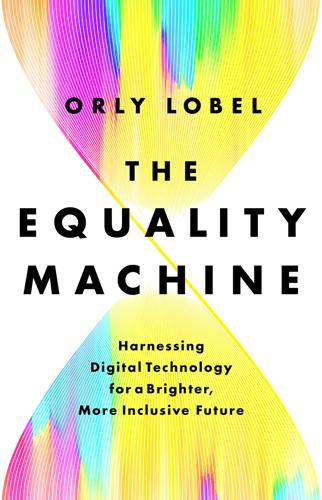
The Equality Machine: Harnessing Digital Technology for a Brighter, More Inclusive Future
by
Orly Lobel
Published 17 Oct 2022
Online dating can be dangerous. When I began researching the reports about app matches that lead to rape, I believed that the incidents and numbers were comparatively similar to those risks and crimes that have always existed in the context of offline dating. Yet, as Manta documents in her forthcoming book, Strangers on the Internet, the rates of sexual offenses linked to online dating are alarming due to the number of strangers with whom both predators and victims interact. Investigative reports about platform users using fake identities—like an OkCupid user who used a fake name on the platform and raped several women—are greatly concerning.
…
Alice Mirando Ollstein and Mohana Ravindranath, “How Some—but Not All—Dating Apps Are Taking On the STD Epidemic,” Politico, December 10, 2019, https://www.politico.com/news/2019/12/10/dating-apps-stds-080159. 18. Irina Manta tells scores of stories about people knowingly transmitting STDs to sexual partners they met through online dating sites in her forthcoming book, Strangers on the Internet, arguing that victims of such actions should be allowed to bring civil litigation against perpetrators. 19. Ollstein and Ravindranath, “How Some—but Not All—Dating Apps Are Taking On the STD Epidemic.” 20. Andrew Gilden, “Punishing Sexual Fantasy,” William and Mary Law Review 58 (2016): 419. 21.
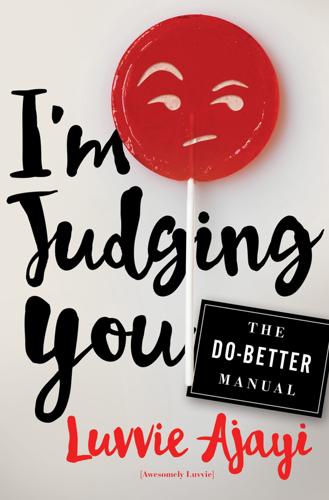
I'm Judging You: The Do-Better Manual
by
Luvvie Ajayi
Published 12 Sep 2016
The levels folks will go to just for page views leave me floored. A man created a video to surprise his wife with her own positive pregnancy test. Read that again. Some lady’s husband decided to secretly test his wife’s urine to see if she was pregnant, and then he created a video about it and uploaded it to the Internet for strangers to see. We have reached peak attention whoredom. You’re probably wondering how he pulled it off. Well, his wife usually pees during the night, and she doesn’t flush so the sound won’t wake up their young child. She mentioned to him that her period was two weeks late, so he decided to sneak into the bathroom after one of her midnight pee sessions.

No One Belongs Here More Than You
by
Miranda July
Published 30 Oct 2008
I pressed my fork into the greens and began to cry. Carl looked up, we stared across the table at each other. It was plain between us: we should not be together any longer. And cut. In the weeks that followed, we amazed ourselves. Our habits slid apart easily; I woke up early in the guest room; he stayed up late chatting with Buddhist strangers on the Internet. Like college roommates, we instinctively used different shelves in the refrigerator for the foods we now bought separately. It turned out we didn’t really like to eat the same things. We searched for new places to live, sometimes seizing on the same apartment listing. And our very few intimacies were simply discontinued.
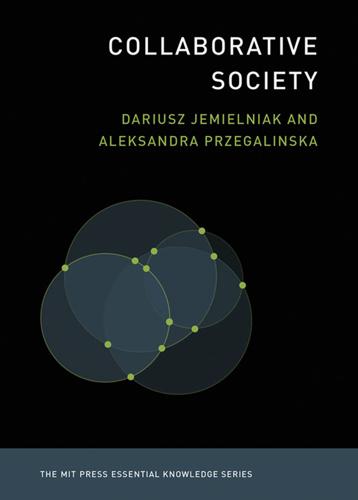
Collaborative Society
by
Dariusz Jemielniak
and
Aleksandra Przegalinska
Published 18 Feb 2020
By 2013, Second Life had approximately one million regular users. The number of current users is unknown. Sharing economy (also called collaborative economy) A very broad term related to utilizing the idle capacity of different kinds of resources and making them available for free or for profit, usually enabled by technology, and relying on internet platforms connecting strangers and intermediating trust between them. See also unsharing economy Technodeterminism A theory that assumes that a society’s technology determines the development of its social, political, and economic structures as well as its cultural values. It also claims that technology is the main driver of societal change.
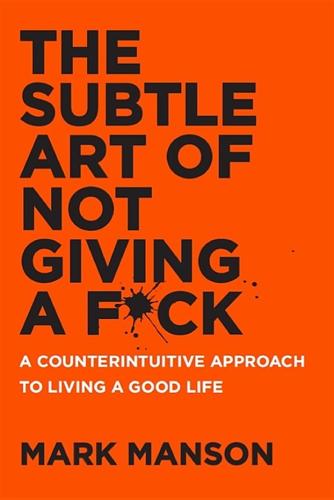
The Subtle Art of Not Giving a F*ck: A Counterintuitive Approach to Living a Good Life
by
Mark Manson
Published 12 Sep 2016
There’s the girl whose parents are immigrants and saved for their whole lives to put her through med school. But now she’s in med school and she hates it; she doesn’t want to spend her life as a doctor, so she wants to drop out more than anything. Yet she feels stuck. So stuck, in fact, that she ends up emailing a stranger on the Internet (me) and asking him a silly and obvious question like, “How do I drop out of med school?” Or the college guy who has a crush on his tutor. So he agonizes over every sign, every laugh, every smile, every diversion into small talk, and emails me a twenty-eight-page novella that concludes with the question, “How do I ask her out?”

One Day We'll All Be Dead and None of This Will Matter
by
Scaachi Koul
Published 7 Mar 2017
I and a few others talked about what fresh nonsense our parents were mad about this week. There was a family here, sisters and brothers I hadn’t met, nodding in unison, saying, “I know, it’s the worst.” Meanwhile, anyone who didn’t have parents like ours laughed at the story and got a small piece of our family history. Strangers on the internet ask about my dad all the time. They want to know if he’s still baking bread, if he’s still running every morning. A few of them want to know if he’s a terrorist. It’s not all good, but I like the reminders. “I talk to my friends, Papa,” I told him later. “I use it for work and I talk to strangers.”
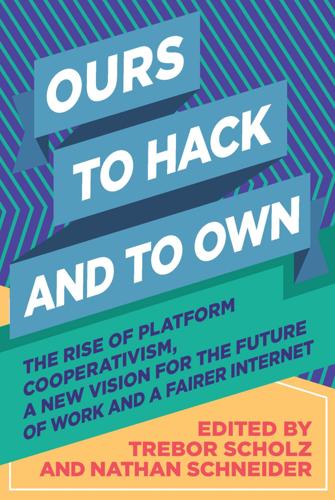
Ours to Hack and to Own: The Rise of Platform Cooperativism, a New Vision for the Future of Work and a Fairer Internet
by
Trebor Scholz
and
Nathan Schneider
Published 14 Aug 2017
Care workers and their clients may want the protections that come from a client-facing employer entity; owning and controlling the platform as an employment entity provides both the protections of employment and the workers’ right to set the terms for a market they rely on. For consumers, the accountability and reassurance offered by an employer entity may be critical; people may be reluctant to entrust their aging parents’ in-home care to a stranger from the Internet, and only an institutional relationship can appropriately mitigate that risk. In any of these cases, membership is meaningful, equating to ownership and control over the entity. A platform that doesn’t actually consider at a granular level the question of membership, its members’ needs, and their relationship to the cooperative—one that uses “cooperative” as some sort of trust mark not backed by actual cooperative structures—runs the risk of simply being part of the problem.

HWFG: Here We F**king Go
by
Chris McQueer
Published 8 Nov 2018
So maybe when I shouted on my maw to look at the snails for the first time she then went away and told folk to tell me that they’d always been here to fucking gaslight me. Yous are all at it. My maw told one person, they told someone else and so on and so on until everybody in my life, my pals, my family, even strangers on the internet and you reading this book were all in on this big joke at my expense. Well, fucking get it up ye. Interview with the Shoe Guy Getting a hold of the man known only as ‘Kojak’ wasn’t easy. He doesn’t have a fixed address or even a phone – I just had to wait for him by the side of the road and hope he’d agree to an interview.
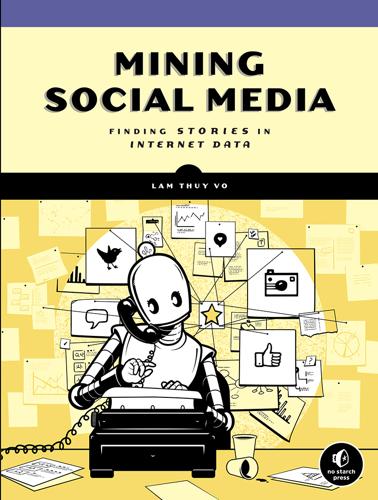
Mining Social Media: Finding Stories in Internet Data
by
Lam Thuy Vo
Published 21 Nov 2019
To embed really long snippets of code into your post in space-efficient ways, you can use helpful platforms like Paste Bin (http://pastebin.com/). Last but not least, consult Stack Overflow’s handy guide for other best practices for asking questions on the forum: https://stackoverflow.com/help/how-to-ask/. Asking strangers on the internet for help may seem daunting, but it can yield wonderful results if you make it a point to ask politely and with respect for people’s time. Summary So many of our interactions and our behavior are now captured on social media platforms. While companies like Facebook or Twitter have certainly found ways to leverage this data in aggregate, I firmly believe that researchers and users themselves should be enabled and empowered to glean their own insights from some of these vast data sets.

Set Boundaries, Find Peace: A Guide to Reclaiming Yourself
by
Nedra Glover Tawwab
Published 16 Mar 2021
Confidence in your boundaries is the cure for self-sabotage. Self-betrayal Changing who you are and what you believe in order to stay in relationships with others Pretending to be someone other than who you really are Comparing yourself with others (friends, family, strangers on the internet, a past version of yourself) Failing to consistently maintain your values Making negative statements about yourself to others or in your head With self-betrayal, we dishonor ourselves by failing to live according to our values or failing to show up as an authentic human being.
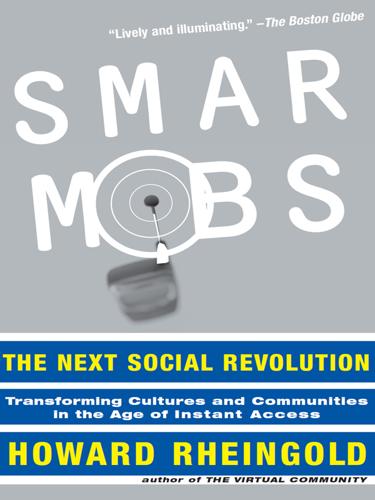
Smart Mobs: The Next Social Revolution
by
Howard Rheingold
Published 24 Dec 2011
Dobryzynski, “In Online Auctions, Rings of Bidders,” New York Times, 2 June 2000, <http://www.nytimes.com/library/tech/00/06/biztech/articles/02ebay.html > (11 January 2002). 28. Peter Kollock, “The Production of Trust in Online Markets,” 99. 29. Paul Resnick and Richard Zeckhauser, “Trust Among Strangers in Internet Transactions: Empirical Analysis of eBay’s Reputation System,” Working Paper for the NBER Workshop on Empirical Studies of Electronic Commerce, 5 February 2001, <http://www.si.umich.edu/~presnick/papers/ebayNBER/index.html > (10 February 2002). 30. Paul Resnick et al., “Reputation Systems,” Communications of the ACM, 43 (December 2000), <http://www.si.umich.edu/~presnick/papers/cacm00/reputations.pdf> (9 February 2002). 31.
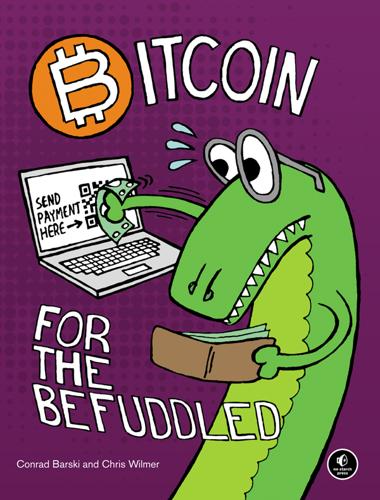
Bitcoin for the Befuddled
by
Conrad Barski
Published 13 Nov 2014
In this context, it is important to distinguish between the blockchain (the immutable public document that correctly lists every valid Bitcoin transaction) and someone’s copy of the blockchain, which is what you have access to. The former is an abstract concept, whereas the latter is the practical reality. When you connect your wallet program to the Bitcoin network, it connects to several nodes that will send your program transaction data, but you cannot assume that data is valid. If you ask a stranger on the Internet to pay you 2 BTC for an expensive watch you are selling, and a node you are connected to indicates you have received 2 BTC shortly thereafter, is it safe to mail the watch? A valid transaction needs to (1) have the correct digital signature and (2) use bitcoins that originated in a mining block reward and have not yet been spent.
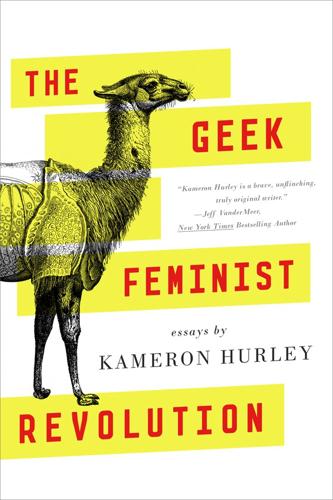
The Geek Feminist Revolution
by
Kameron Hurley
Published 1 Jan 2016
I know that’s horrifically sad, but it’s true. It’s the society we live in. Our fear of strangers has always been a stalking horse for the real threat, and that’s the people closest to us: our friends, our family, our lovers. Our discussions about the dangers of online discourse make the strangers of the internet into some kind of bogeyman, when in fact they are all simply specters of a broken and systematically misogynist world. My grandmother often carried around a bullet that she said came from two planes that were in a dogfight overhead. She said you could tell which planes were German and which were American by the sound of the engines.
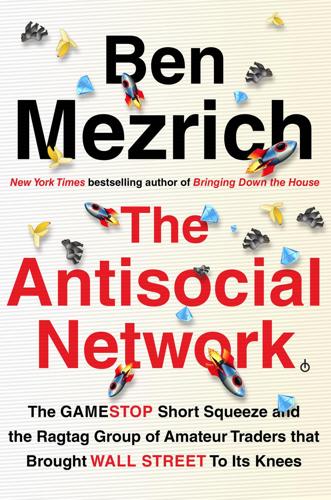
The Antisocial Network: The GameStop Short Squeeze and the Ragtag Group of Amateur Traders That Brought Wall Street to Its Knees
by
Ben Mezrich
Published 6 Sep 2021
It would be like a fresh start. But until then, she swept hair, while watching her stomach grow, still pretty much isolated from her friends and family. She had Trevor; but sometimes, even Trevor, as much as she loved him, wasn’t enough. In many ways, the WSB board had filled that void. She knew it was foolish; strangers on some Internet messaging site putting up memes and talking about random stocks in foul language shouldn’t have been fulfilling for anyone with half a brain or a quarter of a life—but at the moment, what Sara mostly had was anticipation—of the baby, of things getting better, of one day finding a different job and getting back her social world.

Hacker, Hoaxer, Whistleblower, Spy: The Story of Anonymous
by
Gabriella Coleman
Published 4 Nov 2014
Typically, it looked something like this: (04:56:18 PM) The topic for #opb is: OPERATION PAYBACK Twitter: Hive: 91.121.92.84 | Target: See: #Setup #Target #WikiLeaks #Propaganda #RadioPayback #Protest #Lounge and /list for rest In conjunction, Anonymous was churning out a slew of well-reasoned manifestos, videos, and posters; Anonymous had tapped into a deep, widespread disenchantment, and by providing a conduit for confrontational activism, had channeled it into a more visible and coherent form. It was as if everybody knew it was history in the making: the first populist, large-scale Internet demonstration. Strangers were reaching out to work toward a common goal. I myself was inspired. The conversations were a whole other matter. With thousands of people logged in and up to a hundred users talking at once, it was wildly cacophonous and required every last shred of my already ADHD-addled brain to follow.
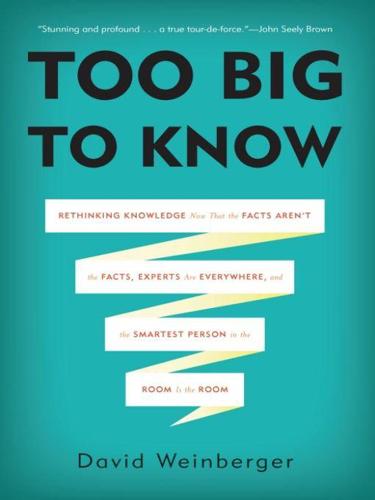
Too Big to Know: Rethinking Knowledge Now That the Facts Aren't the Facts, Experts Are Everywhere, and the Smartest Person in the Room Is the Room
by
David Weinberger
Published 14 Jul 2011
The problem is that when there were few clubs, we knew what they stood for: Getting an article published in Nature would definitely go to the top of your résumé. In an abundant, permission-free publishing environment, metadata—information about information—becomes more important than ever. The difference between the sentence “Birds descended from dinosaurs” when it comes from some anonymous stranger on the Internet and when it comes from Nature is the metadata that says Nature is reliable. It used to be that the authority metadata was implicit in how the knowledge was distributed: It came from Nature, or from your physician’s mouth. The mere existence of a book from a reputable publisher was metadata that established that at least some authorities thought it was worthwhile.
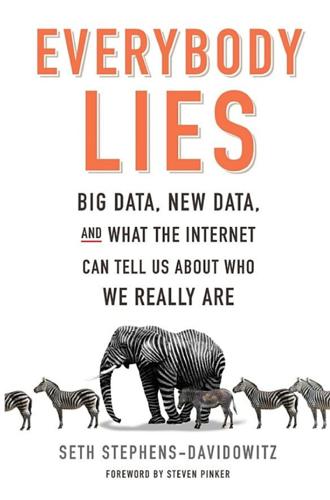
Everybody Lies: Big Data, New Data, and What the Internet Can Tell Us About Who We Really Are
by
Seth Stephens-Davidowitz
Published 8 May 2017
My father has generally been supportive of my unconventional research interests. But one time he did broach the subject. “Racism, child abuse, abortion,” he said. “Can’t you make any money off this expertise of yours?” Friends and other family members have raised the subject, as well. So have coworkers and strangers on the internet. Everyone seems to want to know whether I can use Google searches—or other Big Data—to pick stocks. Now it was the former Treasury secretary of the United States. This was more serious. So can new Big Data sources successfully predict which ways stocks are headed? The short answer is no.
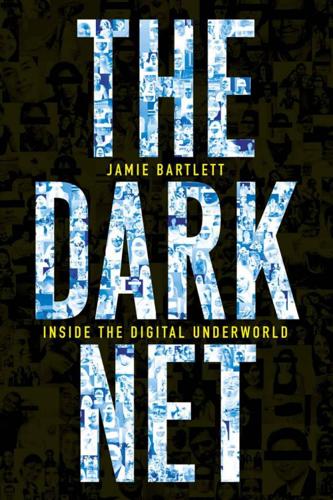
The Dark Net
by
Jamie Bartlett
Published 20 Aug 2014
One user commented: ‘SARAH YES YOU ARE LURKING I’m sorry this had to happen to you, but it happens to any girl who posts nudes here. This is why girls shouldn’t post nudes here. There is a board specifically for that. In the future, do not give so much information about yourself to random strangers on the internet. I know it is fun for first timers and you want to be chatty with everyone to please them, but just send a message to your friends and apologise to them because some of them will be contacted by fake profiles who will send them your nudes. Just say this to them. “So I posted nudes somewhere on the internet.

Lonely Planet Maldives (Travel Guide)
by
Planet, Lonely
and
Masters, Tom
Published 31 Aug 2015
Activities are pretty similar across the country: desert-island visits, beach barbecues, snorkelling, diving and fishing expeditions. Staff members at guesthouses tend to be a highlight. Young, enthusiastic and entrepreneurial, they are pioneers of local tourism and, for the most part, speak great English and have a real passion for showing foreigners the very best of their country. Many guesthouses are still strangers to the internet, and many emails can go unanswered. For easy booking, try www.guesthouses-in-maldives.com, a website that arranges stays on local islands with guesthouses for you, and who offer some good package deals, including help with your transfers. DRY ISLANDS Travelling independently among the inhabited islands of the Maldives means that you’ll need to be prepared to adapt to local standards of dress and behaviour, many aspects of which don’t exactly gel with most people’s idea of a holiday.
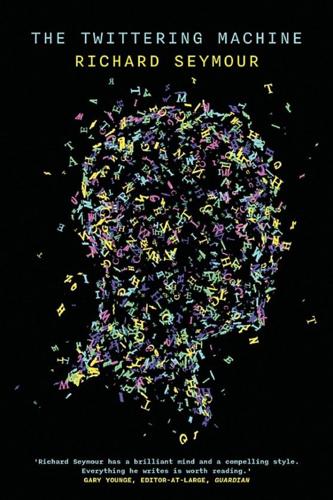
The Twittering Machine
by
Richard Seymour
Published 20 Aug 2019
No one kneads us again out of earth and clay/no one incants our dust. No one. Paul Celan, ‘Psalm’ A wannish-grey June day in Égly, an ugly banlieue on the outskirts of Paris, and Océane was about to do something with celebrity. The ration of celebrity, even less than the famous fifteen minutes, afforded every random stranger on the internet. Speaking to followers on the Twitter-owned live-streaming app, Periscope, she was enigmatically calm. Her eyes, almost as dark as her wavy black hair, betrayed no hint of disturbance. Even when some of her followers tried to troll her, calling her a ‘dirty whore’, a ‘retard’, or demanding to see her tits, she remained impassive.
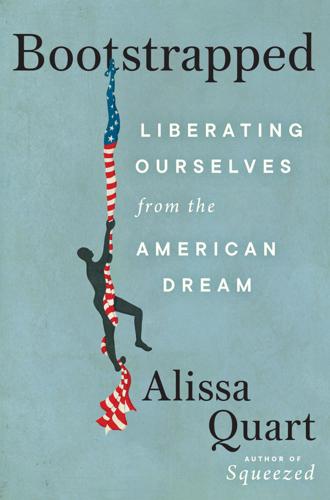
Bootstrapped: Liberating Ourselves From the American Dream
by
Alissa Quart
Published 14 Mar 2023
He also believed that these sites shouldn’t have to exist and these needs were not necessarily supposed to be relieved by an online charity drive, rather than government aid. In fact, like me, he felt these sites were evidence that our country had left us to survive on our own, and many of us could not do so, which was why many are at least partly getting by on what they are able to collect from friends and even near-strangers on the internet. It’s part of what I call the “dystopian social safety net.” The dystopian social safety net includes nonprofits throughout the country that are forced to open “warming centers” to prevent those experiencing homelessness from freezing on corners and at bus stops during cold snaps. For slightly more solvent unhoused people, there are safe parking initiatives, where designated lots double as housing for those living out of their cars; in Walmart parking lots and other commercial lots, spaces meant to be briefly used by vehicles loading up on dog chow have become ad hoc overnight residences.
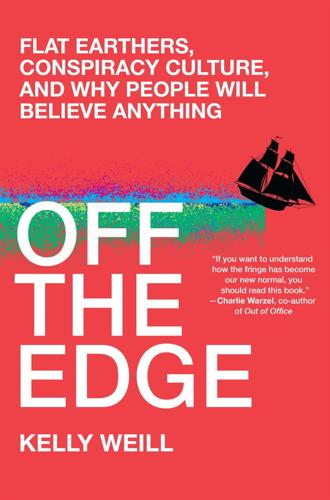
Off the Edge: Flat Earthers, Conspiracy Culture, and Why People Will Believe Anything
by
Kelly Weill
Published 22 Feb 2022
She hadn’t even believed a close friend who confided that she was second-guessing the planet’s shape. “She told me, ‘Ginny, I think the earth is flat.’ I said, ‘What? That is the most wackadoodle thing I have ever heard.’ ” The friend told Ginny to search for Flat Earth videos on YouTube. And while Ginny had doubted her longtime friend, strangers on the internet soon changed her mind. She watched hours of Flat Earth videos over the course of several days and converted before the week was up. “I spent like three nights wide awake and then I was hooked,” she said. “I told my husband, ‘You won’t believe what I’ve been watching.’ ” He watched the videos and became a convert, too.
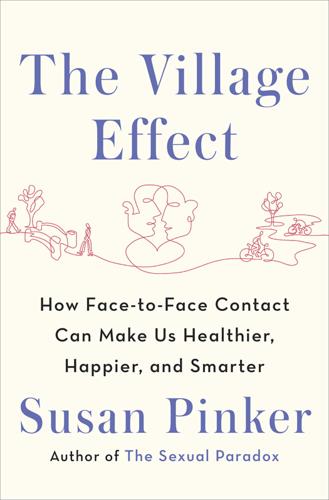
The Village Effect: How Face-To-Face Contact Can Make Us Healthier, Happier, and Smarter
by
Susan Pinker
Published 30 Sep 2013
Skeptical that screen time could be contributing to loneliness, they call it a trap to assume that “internet encounters contain less social information and communication that might cause relationships to atrophy.” We have a strong sense of the people we meet up with online, and the medium is not the message, they write, adding this odd postscript: “People rarely interact with strangers over the internet.”26 Yet there is an undeniable fact: due to the convenience and power of the Internet, many of us now live, shop, go to school, and work alone. With classes now posted online and the proliferation of MOOCs (massive open online courses), many college students don’t bother to leave their rooms.
…
Lee Rainie and Barry Wellman, Networked: The New Social Operating System (Cambridge, Mass.: MIT Press, 2012); Clay Shirky, Here Comes Everybody (London: Allen Lane, 2008). 5. Elizabeth K. Englander, “Research Findings: MARC 2011 Survey Grades 3–12,” MARC Research Reports 2 (2011); Amanda Lenhart, “Teens, Stranger Contact and Cyberbullying,” Pew Internet and American Life Project, April 30, 2008, http://cyber.law.harvard.edu/sites/cyber.law.harvard.edu/files/Pew%20Internet%20teens.pdf. 6. Sameer Hinduja and Justin Patchin, “Bullying, Cyberbullying, and Suicide,” Archives of Suicide Research 14, no. 3 (2010). 7.
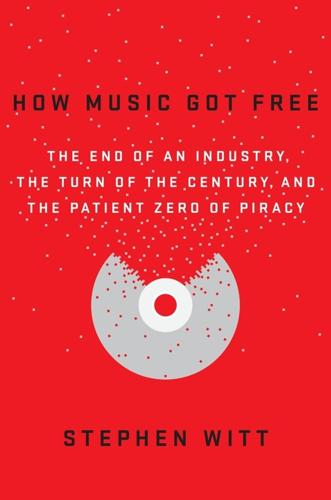
How Music Got Free: The End of an Industry, the Turn of the Century, and the Patient Zero of Piracy
by
Stephen Witt
Published 15 Jun 2015
They were good record keepers too, and the stories they told of the early days could almost always be corroborated with photographs and documentation. But when it came to the mysterious period of late 1996 to early 1997, every one of them drew a blank. No one—not one—could remember the first time they’d heard the word “piracy.” The Fraunhofer team were no strangers to the Internet, but the Internet they knew was a collaborative tool for research and commerce, not some grimy subculture of anonymous teenage hackers. In their naiveté, they had not seen what was coming. Somewhere in the underworld, L3Enc, the DOS-based shareware encoder Grill had programmed several years back, was being used to create thousands upon thousands of pirated files.

Everything Is Perfect When You're a Liar
by
Kelly Oxford
Published 20 Aug 2012
We’d been there only half an hour, but already I was two shots and half a martini in, which was excessive for me. Then again, I’d just run through a lobby half-naked, convinced I was being chased by a hundred Chinese men. “Well, long story short,” Aimee said, “we came here from Canada to find Leonardo DiCaprio. We haven’t been able to find him, but we’ve been taken home by a stranger from the Internet, driven around by a Czech meth head, and attacked by a hostile hostel roommate. We’ve also borrowed a Mercedes and smoked weed in Compton.” I pointed at Aimee. “Well, she smoked weed in Compton. What else? Well . . . we saw a stabbing on a bus. We got pot from Andy Dick. We saw Bill Maher dancing with a black woman.
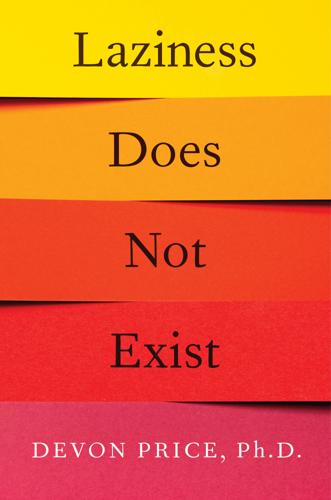
Laziness Does Not Exist
by
Devon Price
Published 5 Jan 2021
I’m not there just to be at the very top. That’s what savoring is all about to me. The phrase is ‘stop and smell the roses,’ not ‘run through the field trying to smell as many roses as you can, as quickly as possible.’ ” — CHAPTER FIVE — You Don’t Have to Be an Expert in Everything “I’m fighting with a stranger on the Internet again,” Noah messaged me one night. “Please tell me to stop.” “It’s a waste of time and you should stop,” I told him, for perhaps the fiftieth time. “They’re never going to listen, and you’re just gonna make yourself upset.” Noah is an engineer and a voracious reader, so he’s accumulated a lot of knowledge about a variety of topics.
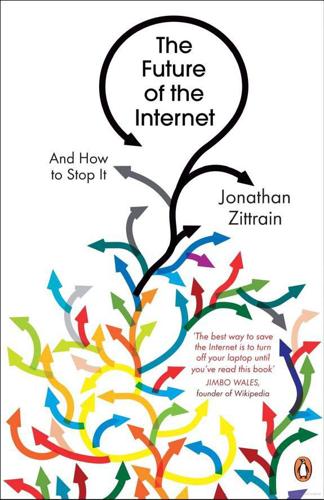
The Future of the Internet: And How to Stop It
by
Jonathan Zittrain
Published 27 May 2009
See, e.g., Paul Resnick et al., Reputation Systems, 43 COMMS. ACM 45 –48 (2000), available at http://www.si.umich.edu/-presnick/papers/cacmOO/reputations.pdf (noting that reputation systems protect anonymity while fostering reliable transactions); Paul Resnick & Richard Zeckhauser, Trust Among Strangers in Internet Transactions: Empirical Analysis of eBay s Reputation System, 11 ADVANCES APPLIED MICROECON. 127 (2002), available at http//www.si.umich.edu/-presnick/papers/ebayNBER/RZNBERBodegaBay.pdf (noting that eBay’s system and others appear to work, probably with help from norms drawn from outside the online context); Chrysanthos Dellarocas, The Digitization of Word-of-Mouth: Promise and Challenges of Online Feedback, 49 MGMT.
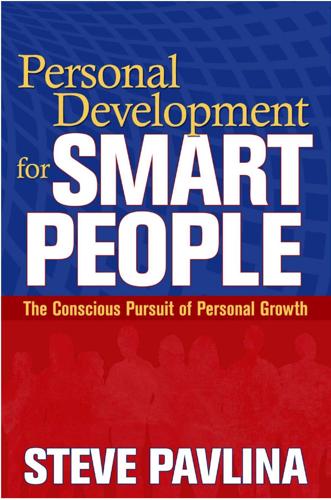
Personal Development for Smart People: The Conscious Pursuit of Personal Growth
by
Steve Pavlina
Published 14 Oct 2008
Here are some suggestions for growth targets y o u might set for each principle. You only need one target per principle, but y o u can choose multiple targets if you're confident that y o u can handle it. 1 . Truth • Confess to a lie or secret y o u ' v e been concealing (easy: confess to a stranger over the Internet; hard: confess to someone y o u ' v e been lying to). • Write d o w n your most realistic prediction for w h a t y o u think your life will look like five years from today; then ask 128 Intelligence someone else to make a similar prediction for y o u , and compare your answers. • • Read a book on a topic y o u know virtually nothing about.
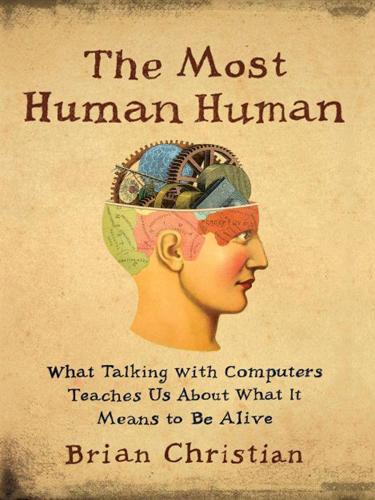
The Most Human Human: What Talking With Computers Teaches Us About What It Means to Be Alive
by
Brian Christian
Published 1 Mar 2011
Curiously, this insistence seems to have little effect on many users, who have their own, rather different theory about what’s going on. The Internet of the early 1990s was a much more anonymous place than it is now. On local BBSs (bulletin board systems), in the chat rooms of “walled garden” Internet providers/communities like Prodigy and AOL, and over universal chat protocols like IRC (Internet Relay Chat), strangers bumped into each other all the time. The massive social networks (e.g., Facebook) of the late ’00s and early ’10s have begun to make the Internet a different place. It’s around this time that websites like Chatroulette and Omegle, designed to bring some of that anonymity, randomness, and serendipity back, took off.
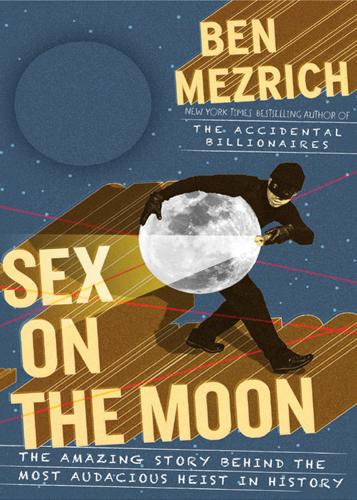
Sex on the Moon: The Amazing Story Behind the Most Audacious Heist in Histroy
by
Ben Mezrich
Published 11 Jul 2011
Because now it was beginning to feel less like a game and more like something real. Here, in front of him, was a response—from some guy in Belgium, a mineral collector, a rock hound, with the Hollywood-ready name of Axel Emmermann. Axel Emmermann seemed ready and eager to commit what he had to know was a crime—purchasing an illegal “multicarat” moon rock from a stranger on the Internet. Thad was still playing a game, but this Axel Emmermann wasn’t; he was really looking to buy a piece of the moon. Thad ran a hand through his flop of curly auburn hair. He was wearing only a bathing suit, having just come back from a day of scuba instruction at the local Y. His hair was still damp, and he could feel the goose bumps rising across his naked chest and back.

Queenie
by
Candice Carty-Williams
Published 19 Mar 2019
I’d only been away from Tom a day. “I’ll see if I can pop in after Don’s gig. I’m making no promises, though, I’ll probably be off my face,” Leigh said, standing up and winking at his reflection in the smudged window. * * * I was as surprised as the next person that I’d moved into a house with strangers from the Internet. The prospect itself filled me with dread, fear, and a healthy amount of disgust, but £21K a year wasn’t going to get me anything bigger than someone’s garage space. The housemates themselves didn’t seem awful, but I felt very nervous at the prospect of living with white people, because I know that my standards of inherited Caribbean cleanliness are bordering on clinical OCD levels.
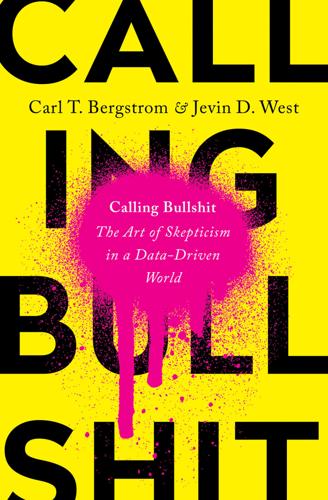
Calling Bullshit: The Art of Scepticism in a Data-Driven World
by
Jevin D. West
and
Carl T. Bergstrom
Published 3 Aug 2020
Several search engines provide a reverse image lookup service in which you upload a picture or a few frames from a video, and the search engine tells you where on the Web that picture or video can be found.*8 This is one of the more underutilized tools on the Web for fact-checking. If you are suspicious of a Twitter or Facebook account, check to see if the profile photo comes from a stock photo website. Be aware of deepfakes and other synthetic media. A random stranger on the Internet could be anybody, anywhere. But while we’ve learned to distrust user names by themselves, we’re still susceptible to people’s pictures. In the past, a person’s photo was pretty good proof that they existed. No longer. So-called deepfake technology makes it possible to generate photorealistic images of people who don’t exist.
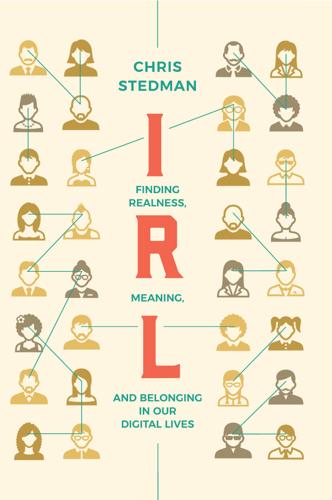
IRL: Finding Realness, Meaning, and Belonging in Our Digital Lives
by
Chris Stedman
Published 19 Oct 2020
It became his primary outlet, and he found community there—especially among fans of Stevens, whose music inspired and consoled him during some of his most difficult moments. But any accounts on online platforms that his family might find, like Facebook or Twitter, were closeted spaces for Zain. His digital life became highly compartmentalized. And so, when he and I connected on Twitter‚ he was in the closet, even to me—a stranger from the internet who was openly queer and working on issues of religion, sexuality, and identity. Zain had a full life as an out gay man online, but only on Tumblr. Everywhere else, online and off, he had to hide. In 2010, he moved to the US to work with death row inmates for a year in North Carolina. He became deeply passionate about US politics and social justice, and it was at that time he came across my Twitter feed.
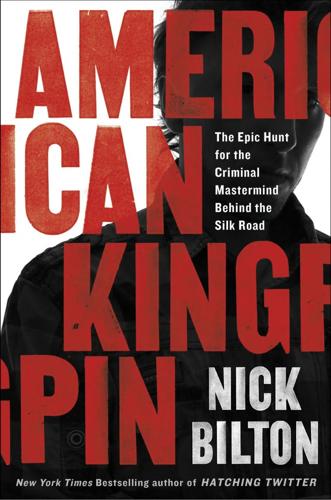
American Kingpin: The Epic Hunt for the Criminal Mastermind Behind the Silk Road
by
Nick Bilton
Published 15 Mar 2017
Given that there would be several kilos of product at the end of the yield, he could easily make tens of thousands of dollars in profit. But—and this was a big “but”—this was a lot of mushrooms to offload, and it wasn’t obvious that his Web site was even going to work. Would people want to buy magic mushrooms off a stranger on the Internet? “Aren’t you worried about getting caught?” Julia asked. “Of course,” he replied, as if it were the most obvious question in the world. “But I need product for my site.” He reminded her that no one else knew about this hideaway. He had taken the proper precautions to stay covert during his shroom-growing phase and even read the book The Construction and Operation of Clandestine Drug Laboratories, which was essentially a Dummies guide for setting up a felonious drug lab.
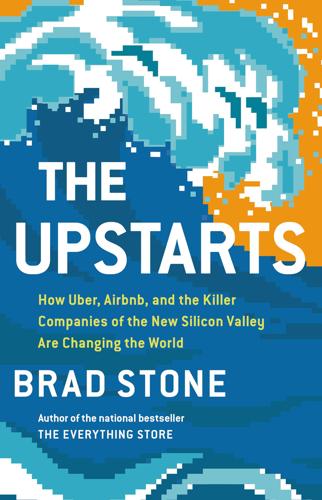
The Upstarts: How Uber, Airbnb, and the Killer Companies of the New Silicon Valley Are Changing the World
by
Brad Stone
Published 30 Jan 2017
The startup hadn’t solved the tricky chicken-and-egg problem that confronts the creators of online marketplaces. The relatively few listings on the site drew few guests looking for travel accommodations, and the paucity of guests didn’t inspire potential new hosts to embrace the unorthodox concept of making their homes available to total strangers over the internet. The Airbnb founders like to talk about some of their more ham-handed attempts to ignite their marketplace that first year, but none of them account for how the company actually achieved liftoff. For example, while Blecharczyk stayed behind to code, Chesky and Gebbia continued to try to build up early listings by visiting New York, Las Vegas, and Miami, among other cities, and organizing meet-ups with any hosts they could find.
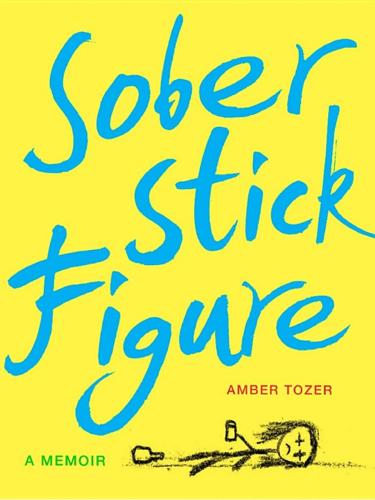
Sober Stick Figure: A Memoir
by
Amber Tozer
Published 29 May 2016
It was so good, thicker and tastier than the keg beer I used to drink in garages back home. I drank it real fast, then ordered a vodka cranberry because I wanted something stronger and healthier. I hoped Jeff was paying because these drinks were way more expensive than they were in Pueblo. It felt good to be on my own away from my mom and her friends, drinking with a stranger I met on the Internet. Jeff ended up being a very nice guy, which meant I wasn’t attracted to him. He was a very safe friend to have. We only had a couple of drinks because I had dinner plans with my mom. I still felt like a kid: “I have to go because my mom is waiting for me.” I wanted to stay and drink more.
…
The first week flew by, and it was time for my mom and her friends to leave. It was a Friday. I started my new job on Monday, and I still hadn’t found a place to live. I didn’t want to stay in the hotel because it was really expensive. My mom kept asking me if I was going to be okay. I was like, “Yeah. I’ll be fine. I’ll just call that stranger I met on the Internet and stay with him.” She cried one more time as she hugged me good-bye. Then she walked out the door with her motley crew of friends who were going on and on about what a good time they had, while she was probably thinking that her oldest daughter was going to die. I had a few more hours in the hotel before checkout time, and it felt very weird being all alone.
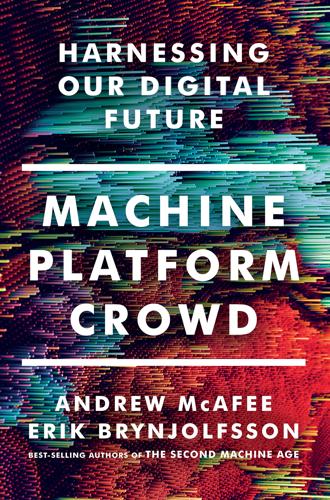
Machine, Platform, Crowd: Harnessing Our Digital Future
by
Andrew McAfee
and
Erik Brynjolfsson
Published 26 Jun 2017
A 2013 review of GE’s efforts in this area found that the company’s most sought-after capability was to “create marketing innovation internally.” Then why did General Electric, a company that has an annual budget of $5.2 billion for R&D and that spends $393 million on marketing in the United States alone, opt in 2015 to work with a group of strangers across the Internet to help the company think up and design a new consumer product? And why was a company with a market cap of $280 billion and $90 billion cash on hand asking potential customers to commit to a several-hundred-dollar preorder well in advance of the product’s availability? Nuggets of Wisdom about Nuggets of Ice In 2014, GE and the University of Louisville had launched a joint initiative called FirstBuild, a “co-creation community that is changing the way products come to market.”
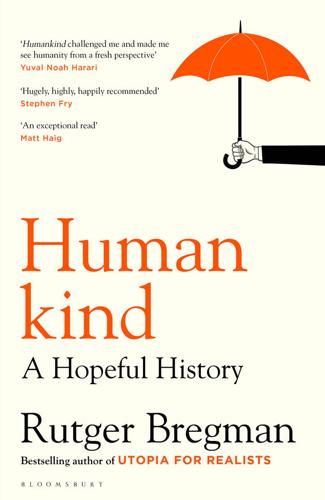
Humankind: A Hopeful History
by
Rutger Bregman
Published 1 Jun 2020
This is the pain of hundreds of people in the Netherlands.’ And he was right. Everyone knew somebody who’d known somebody on that plane. During those days, I felt Dutch in a way I never had before. Why do we care more about people who seem like us? In Chapter 10, I wrote that evil does its work from a distance. Distance lets us rant at strangers on the internet. Distance helps soldiers bypass their aversion to violence. And distance has enabled the most horrifying crimes in history, from slavery to the Holocaust. But choose the path of compassion and you realise how little separates you from that stranger. Compassion takes you beyond yourself, until those near and dear are no more or less significant than the rest of the world.
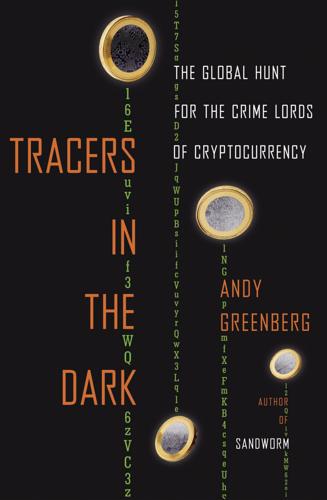
Tracers in the Dark: The Global Hunt for the Crime Lords of Cryptocurrency
by
Andy Greenberg
Published 15 Nov 2022
The site had been spotted by the NCA’s child exploitation investigations team, who had come across it in the midst of a particularly horrific case, even by the standards of their usual work. NCA agents had been tracking an offender named Matthew Falder. An academic based in Manchester, England, Falder would pose as a female artist and solicit nude photos from strangers on the internet, then use those images to blackmail them, threatening to share the images of his victims with their family or friends unless they recorded themselves carrying out increasingly demeaning and depraved acts. He’d then use those videos as further blackmail fodder, forcing his victims to commit self-harm and sexually abuse others on camera.
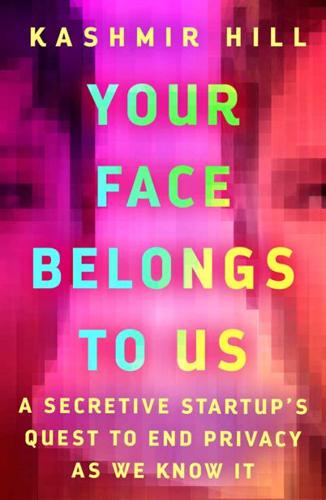
Your Face Belongs to Us: A Secretive Startup's Quest to End Privacy as We Know It
by
Kashmir Hill
Published 19 Sep 2023
The Borings, a couple in Pennsylvania, sued the company for taking photos of their driveway, alleging invasion of privacy and trespassing, but the slow-moving lawsuit did little to change the company’s mind. It was only after pushback from European privacy regulators that Google offered a salve for people who didn’t want strangers on the internet prowling virtually outside their homes. Google created a blurring option—initially for people who lived in Germany, where the company had faced the biggest backlash—to pixelate their houses in Street View photos to make them unrecognizable. Hundreds of thousands of Germans took advantage of this privacy measure—but it backfired when the blurs became beacons.
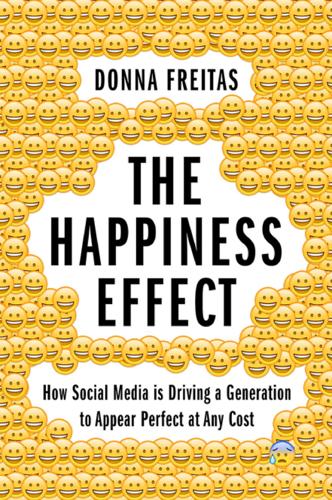
The Happiness Effect: How Social Media Is Driving a Generation to Appear Perfect at Any Cost
by
Donna Freitas
Published 13 Jan 2017
Almost every one of her answers ends with her saying something like this—how she got off of Facebook or about how unhappy being on Facebook was making her feel. But eventually she expands on what she means by how she used to “talk to strangers” when she was fourteen and fifteen and, with hindsight, how reckless this was. “Social media before just encouraged me to make friends with random strangers on the Internet that I would never meet in person,” Mae explains. “Some of the strangers would be from different countries, so I couldn’t even pronounce their names. They [messaged me]. They would talk about how beautiful my pictures were and how old I was, where I lived. They would also add my friends and then they would also message my friends.
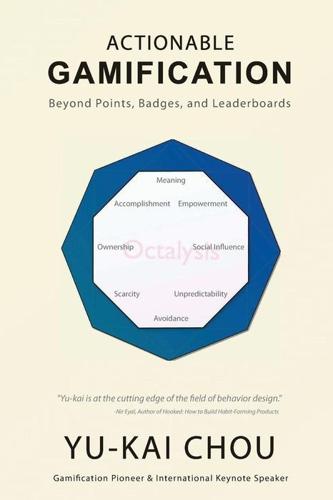
Actionable Gamification: Beyond Points, Badges and Leaderboards
by
Yu-Kai Chou
Published 13 Apr 2015
At the time, I thought “What’s eBay? I’ve heard about it before.” I did some research about eBay, and shortly after I sold my two tickets through the platform (I hope the barbecue organizers don’t read my book). That one transaction was surprisingly thrilling and fun for me. When I received my first bid from an anonymous stranger on the Internet, I almost jumped for joy (cultural joke: but I did not get stuck). Shortly after, I became obsessively glued to the screen after another bidder joined in on the “war.” During the few days of the listing, it was the only thing on my mind. I continuously checked my listing, trying to see if people would outbid the last bidder.
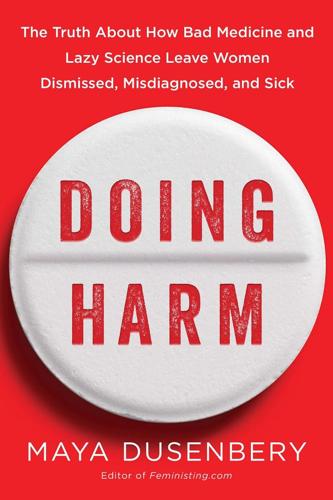
Doing Harm: The Truth About How Bad Medicine and Lazy Science Leave Women Dismissed, Misdiagnosed, and Sick
by
Maya Dusenbery
Published 6 Mar 2018
And forget the authority to speak about the world; some of the most urgent feminist battles have been over women’s ability to speak to the conditions of their own lives. Women still struggle to be believed when they say that their husbands may kill them, or their bosses sexually harassed them, or their classmates raped them. They’re still told by everyone from lawmakers to strangers on the Internet that they’ll regret their abortions. It’s no coincidence that “believe survivors” is a rallying cry of the anti-rape movement and that the slogan “trust women” adorns pro-choice signs. But the more I thought about it, the less sure I was that I understood why women’s accounts of their symptoms so often were not trusted by health care providers.
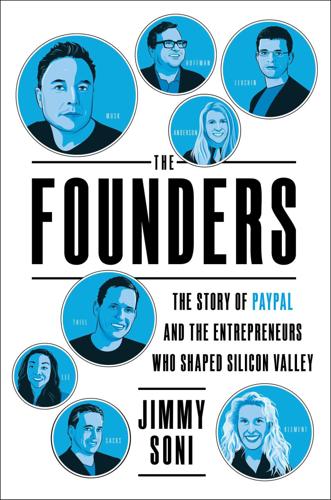
The Founders: The Story of Paypal and the Entrepreneurs Who Shaped Silicon Valley
by
Jimmy Soni
Published 22 Feb 2022
What was supposed to be Hoffman’s months-long tour of duty stretched into several years. He would see PayPal through to its IPO, often serving as just the emissary Thiel had envisioned the company would need. * * * In December 1999, Confinity was approached with an acquisition offer. The company freely distributed thousands of dollars every day to strangers on the internet—such were acquisition targets in the “happy gas” era. Confinity had, however, solved a real problem—one that its prospective purchaser faced as well. BeFree Inc. was a Boston-based affiliate marketing firm founded by brothers Tom and Sam Gerace. BeFree worked with traditional retailers to advertise products online.
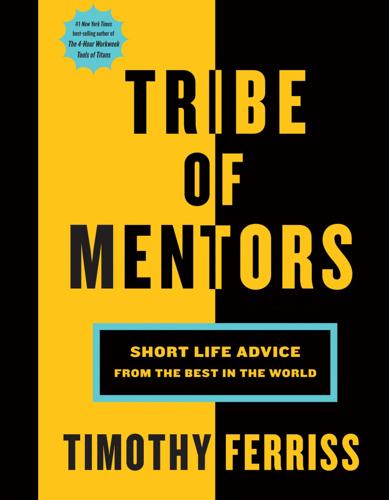
Tribe of Mentors: Short Life Advice From the Best in the World
by
Timothy Ferriss
Published 14 Jun 2017
He’s a computer scientist, legal scholar, and cryptographer best known for his pioneering research in digital contracts and cryptocurrency. The phrase and concept of “smart contracts” were developed by Nick with the goal of bringing what he calls the “highly evolved” practices of contract law and practice to the design of electronic commerce protocols between strangers on the Internet. Nick also designed Bit Gold, which many consider the precursor to Bitcoin. * * * What is the book (or books) you’ve given most as a gift, and why? Or what are one to three books that have greatly influenced your life? Richard Dawkins, The Selfish Gene, explains more about life (including human behavior and myself) than anything else I’ve read.
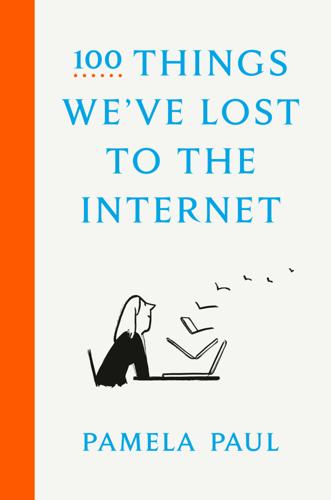
100 Things We've Lost to the Internet
by
Pamela Paul
Published 14 Oct 2021
These employees describe burnout, depression, anxiety, and the ongoing toll of stress as the daily baseline of their jobs, interspersed with jolts of anomie, misanthropy, and indifference. The Internet was never intended to work this way. It was supposed to open people up to self-expression and connection. It was supposed to allow people to show who they really were or, under the cloak of anonymity, to break free from who others expected them to be. The Internet was meant for strangers to exchange freely with one another and in good faith. In a speech at Davos in 1996, the late poet and cyberactivist John Perry Barlow said, “We are creating a world that all may enter without privilege or prejudice accorded by race, economic power, military force, or station of birth.
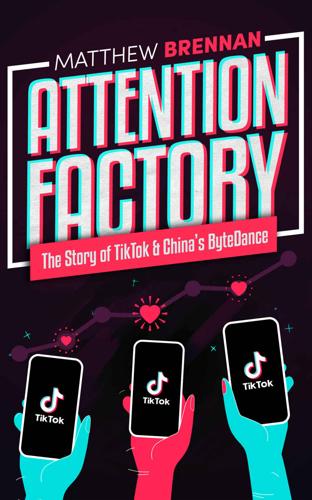
Attention Factory: The Story of TikTok and China's ByteDance
by
Matthew Brennan
Published 9 Oct 2020
From this, they devised the Chinese name, 43 Zì jié tiàodòng ( 字节跳动 ) , which literally translates as Byte Bounce, a change that was made in part due to concerns the company might be mistaken for a dance agency. If you think the name sounds a little strange in English, it arguably sounds stranger in Chinese. Chinese internet startups created around this time tended to focus exclusively on the massive and abundant opportunities already present in the local domestic market with little thought given to overseas. Choosing an English name first provides a reliable indicator that the company really was thinking “Global from day one”—one of ByteDance’s somewhat clichéd company slogans.
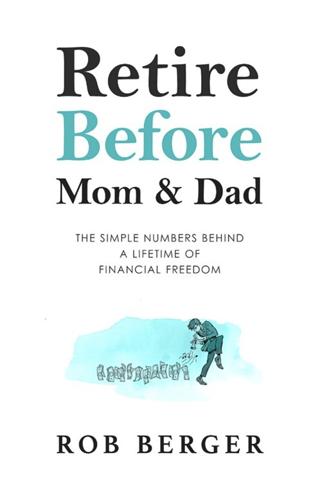
Retire Before Mom and Dad
by
Rob Berger
Published 10 Aug 2019
As with Neo, the world has blinded us from the truth. In the movie, the Matrix created the illusion that the world was “normal.” In our world, the deception we’ve come to believe about money and happiness comes from many sources. It comes from TV commercials, our parents, our friends, complete strangers, magazines, and the internet. Sometimes the lies are explicit, and sometimes they are subtle. But they never stop. I call them “The Five Lies.” Lie #1: Financial Freedom Requires a BIG Salary The world tells us that the average person can’t achieve Financial Freedom. Unless you make a six-figure salary, are born into money, or win the lottery, you can forget about becoming a millionaire or attaining Financial Freedom.
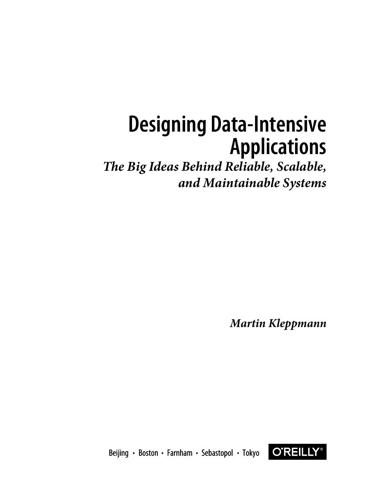
Designing Data-Intensive Applications: The Big Ideas Behind Reliable, Scalable, and Maintainable Systems
by
Martin Kleppmann
Published 17 Apr 2017
. • Some NTP servers are wrong or misconfigured, reporting time that is off by hours [43, 44]. NTP clients are quite robust, because they query several servers and ignore outliers. Nevertheless, it’s somewhat worrying to bet the correctness of your systems on the time that you were told by a stranger on the internet. • Leap seconds result in a minute that is 59 seconds or 61 seconds long, which messes up timing assumptions in systems that are not designed with leap seconds in mind [45]. The fact that leap seconds have crashed many large systems [38, 46] shows how easy it is for incorrect assumptions about clocks to sneak into a system.
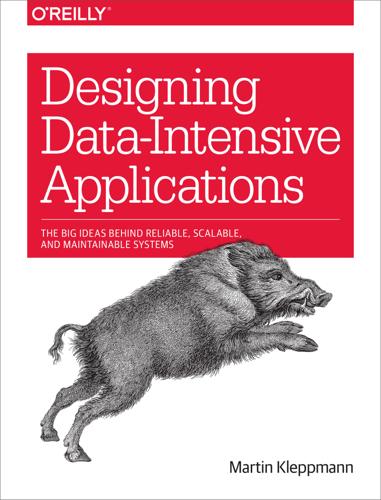
Designing Data-Intensive Applications: The Big Ideas Behind Reliable, Scalable, and Maintainable Systems
by
Martin Kleppmann
Published 16 Mar 2017
Some NTP servers are wrong or misconfigured, reporting time that is off by hours [43, 44]. NTP clients are quite robust, because they query several servers and ignore outliers. Nevertheless, it’s somewhat worrying to bet the correctness of your systems on the time that you were told by a stranger on the internet. Leap seconds result in a minute that is 59 seconds or 61 seconds long, which messes up timing assumptions in systems that are not designed with leap seconds in mind [45]. The fact that leap seconds have crashed many large systems [38, 46] shows how easy it is for incorrect assumptions about clocks to sneak into a system.
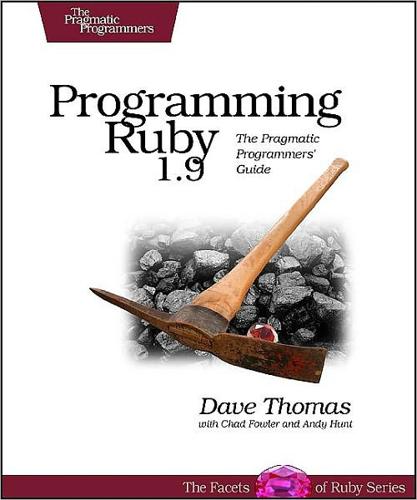
Programming Ruby 1.9: The Pragmatic Programmer's Guide
by
Dave Thomas
,
Chad Fowler
and
Andy Hunt
Published 15 Dec 2000
. */ void Init_CDPlayer() { cCDPlayer = rb_define_class("CDPlayer", rb_cObject); rb_define_alloc_func(cCDPlayer, cd_alloc); rb_define_method(cCDPlayer, "initialize", cd_initialize, 1); rb_define_method(cCDPlayer, "seek", cd_seek, 2); rb_define_method(cCDPlayer, "seek_time", cd_seek_time, 0); } Report erratum Chapter 20 Ruby and the Web Ruby is no stranger to the Internet. Not only can you write your own SMTP server, FTP daemon, or web server in Ruby, but you can also use Ruby for more usual tasks such as CGI programming or as a replacement for PHP. Many options are available for using Ruby to implement web applications, and a single chapter can’t do them all justice.

Without Their Permission: How the 21st Century Will Be Made, Not Managed
by
Alexis Ohanian
Published 30 Sep 2013
There is a renewed sense of optimism and just about all of the 260 teachers who lost their classrooms are signed up for donorschoose.org training over the next week and a half. The connection. It doesn’t matter whether it’s a connection felt between neighbors working hand in hand to rebuild or a connection between complete strangers joined only by the Internet and their desire to help. Debby said it best: “It makes the world smaller because it makes you believe that people really do care and really do want to help each other.” Debby saw her hard work pay off when schools reopened on schedule on August 12. By that first day of school, she had raised more than eight hundred thousand dollars for 260 teachers.

Working in Public: The Making and Maintenance of Open Source Software
by
Nadia Eghbal
Published 3 Aug 2020
But, eventually, popularity offers diminishing returns. If the value of maintaining code fails to outpace the rewards, many of these developers quietly retreat to the shadows. A developer who’s employed at a private company works primarily with their colleagues. A developer who writes code in public must work with thousands of strangers: literally, anybody with an internet connection who cares to comment on their code. The lack of financial reward is a symptom, perhaps, of misaligned incentives, but this inevitable cycle of churn seems to hint at something deeper. The default hypothesis today is that, faced with growing demand, an open source “maintainer”—the term used to refer to the primary developer, or developers, of a software project—needs to find more contributors.
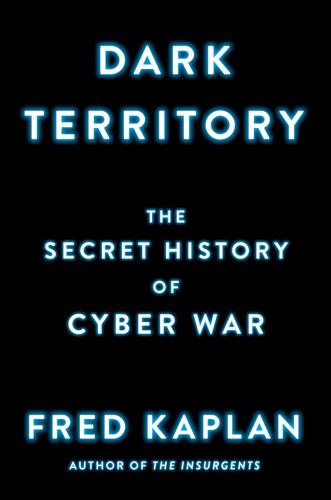
Dark Territory: The Secret History of Cyber War
by
Fred Kaplan
Published 1 Mar 2016
Minihan’s briefing crushed their illusions on both counts: an NSA Red Team had launched an actual attack, and its effects were devastating. Minihan did not reveal one episode of Eligible Receiver, an incident that only a few officials knew about: when the Red Team members were hacking into the networks as part of the exercise, they came across some strangers—traceable to French Internet addresses—hacking into the network for real. In other words, foreign spies were already penetrating vital and vulnerable networks; the threat wasn’t hypothetical. Even without this tidbit, the commissioners were stunned. Marsh asked what could be done to fix the problem. Minihan replied, “Change the law, give me the power, I’ll protect the nation.”

Sandworm: A New Era of Cyberwar and the Hunt for the Kremlin's Most Dangerous Hackers
by
Andy Greenberg
Published 5 Nov 2019
It ran a piece of software called Tor, designed to hide the source of internet traffic by triple-encrypting it and bouncing it through three randomly chosen volunteer servers around the world, known as Tor nodes. The Sandworm command-and-control server was also volunteering as one of those Tor nodes, bouncing strangers’ traffic around the internet. Perhaps it was an attempt to create a confusing flood of cover traffic, like a pickpocket trying to get lost in a crowd. But as Matonis examined the configuration of Sandworm’s Tor server, he found that its setup could serve as a kind of fingerprint—not to identify the hackers behind it, but to spot the other, similar servers they had set up for different operations.
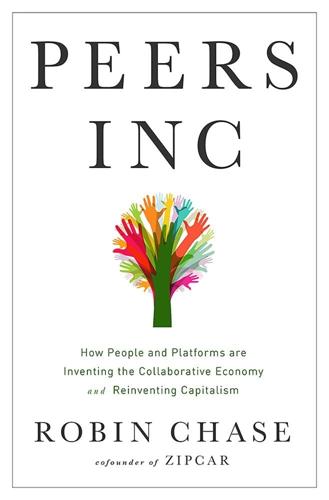
Peers Inc: How People and Platforms Are Inventing the Collaborative Economy and Reinventing Capitalism
by
Robin Chase
Published 14 May 2015
By 2014, 3D Robotics was the largest U.S. personal drone maker, with $21.6 million in revenue and two hundred employees. Jordi, now twenty-eight, is its chief technology officer. Sites such as YouTube, Facebook, Twitter, eBay, and Airbnb could not exist without co-creators, people who reach out to friends, strangers, and colleagues across the Internet. These platforms need peers. And the advantages of engaging as a peer in this new organizational paradigm are plentiful, seen in story after story. What’s deemed important is different from individual to individual. Some characteristics unite them: People opt in; no employer chooses them, no certificate or degree sanctions them, their right to participate does not depend on experience.

The Ghost
by
Robert Harris
Published 22 Oct 2007
If there are any extras, make sure you pay for them in cash. This is the telephone number you use to make contact in future.” “You used to be a cop,” I said. I took the credit card and a torn-out strip of paper with a number written on it in a childish hand. The paper and plastic were warm from the heat of his body. “Don’t use the internet. Don’t speak to strangers. And especially avoid any women who might try to come on to you.” “You sound like my mother.” His face didn’t flicker. We sat there for a few seconds. “Well,” he said impatiently. He waved a meaty hand at me. “That’s it.” Once I was through the revolving glass door and inside the lobby, I checked the name on the card.
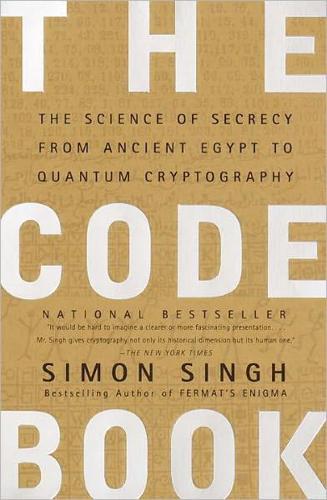
The Code Book: The Science of Secrecy From Ancient Egypt to Quantum Cryptography
by
Simon Singh
Published 1 Jan 1999
Diffie believed that if people then used their computers to exchange emails, they deserved the right to encrypt their messages in order to guarantee their privacy. However, encryption required the secure exchange of keys. If governments and large corporations were having trouble coping with key distribution, then the public would find it impossible, and would effectively be deprived of the right to privacy. Diffie imagined two strangers meeting via the Internet, and wondered how they could send each other an encrypted message. He also considered the scenario of a person wanting to buy a commodity on the Internet. How could that person send an e-mail containing encrypted credit card details so that only the Internet retailer could decipher them?
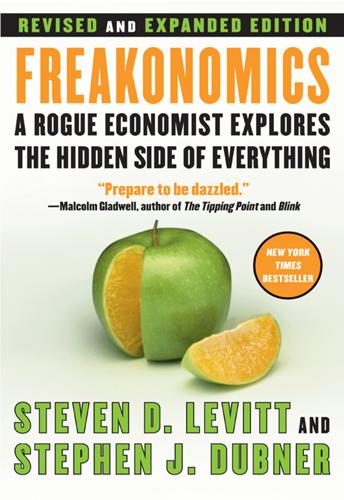
Freakonomics: A Rogue Economist Explores the Hidden Side of Everything
by
Steven D. Levitt
and
Stephen J. Dubner
Published 11 Apr 2005
He is bound to be nervous, after all, and excited, playing a fast-moving game under the glare of television lights. Which naturally suggests another question: how might that same person express his preferences—and reveal information about himself—in the privacy of his home? In a given year, some forty million Americans swap intimate truths about themselves with complete strangers. It all happens on Internet dating sites. Some of them, like Match.com, eHarmony.com, and Yahoo! Personals, appeal to a broad audience. Others cater to more specific tastes: ChristianSingles.com, JDate.com, LatinMatcher .com, BlackSinglesConnection.com, CountryWesternSingles.com, USMilitarySingles.com, OverweightDate.com, and Gay.com.
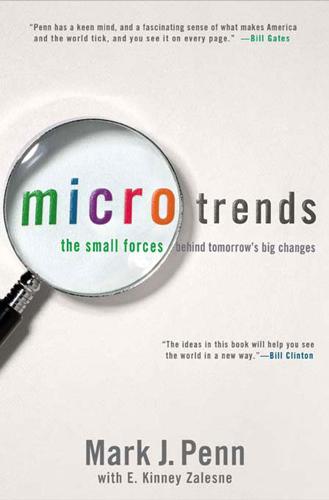
Microtrends: The Small Forces Behind Tomorrow's Big Changes
by
Mark Penn
and
E. Kinney Zalesne
Published 5 Sep 2007
Children of these couples will grow up hearing all about how Mommy and Daddy fell in love over e-mails and chat rooms. How effectively will those parents be able to tell their kids to turn off the computer? And more ominously, will those children have their guard unduly down when it comes to chatting up strangers online? Like Office Romancers, Internet Marrieds need a community of their own, to work through shared experiences, lessons, challenges, and in-jokes. Throughout this book, I speculate about the need for such communities among many of the microtrend groups. But in this case, I have real proof: While only 37 percent of Internet Marrieds say they know at least several couples who met online, 82 percent say they would like to.
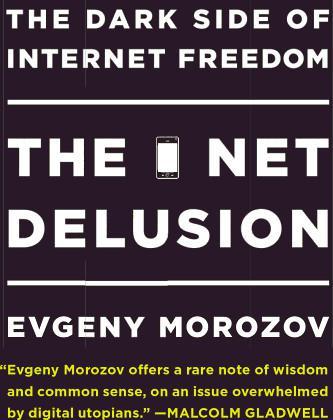
The Net Delusion: The Dark Side of Internet Freedom
by
Evgeny Morozov
Published 16 Nov 2010
An antigovernment chant recorded from the streets of Tehran may soon be broken down into individual voices, which in turn can then be compared to a universe of all possible voices that exist on amateur videos posted on YouTube. Or consider Recognizr, the cutting-edge smartphone application developed by two Swedish software firms that allows anyone to point their mobile phone at a stranger and immediately query the Internet about what is known about this person (or, to be more exact, about this person’s face). Its developers are the first to point to the tremendous privacy implications of their invention, promising that strict controls would eventually be built into the system. Nevertheless, it takes a leap of faith to believe that once the innovation genie is out of the bottle, no similar rogue applications would be available for purchase and download elsewhere.
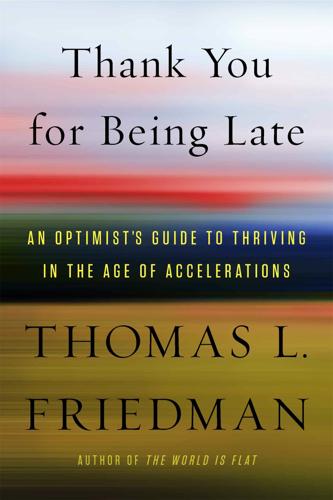
Thank You for Being Late: An Optimist's Guide to Thriving in the Age of Accelerations
by
Thomas L. Friedman
Published 22 Nov 2016
In homage to its roots, they called the company Airbnb, which has grown so large that it is now bigger than all the major hotel chains combined—even though, unlike Hilton and Marriott, it doesn’t own a single bed. And the new trend it set off is the “sharing economy.” When I first heard Chesky describe his company, I confess to being a little dubious: I mean, how many people in Paris really want to rent out their kid’s bedroom down the hall to a perfect stranger—who comes to them via the Internet? And how many strangers want to be down the hall? Answer: a lot! By 2016, there were sixty-eight thousand commercial hotel rooms in Paris and more than eighty thousand Airbnb listings. Today, if you go to the Airbnb website you can choose to stay in one of hundreds of castles, dozens of yurts, caves, tepees with TVs in them, water towers, motor homes, private islands, glass houses, lighthouses, igloos with Wi-Fi, and tree houses—hundreds of tree houses—which are the most profitable listings on the Airbnb site per square foot.
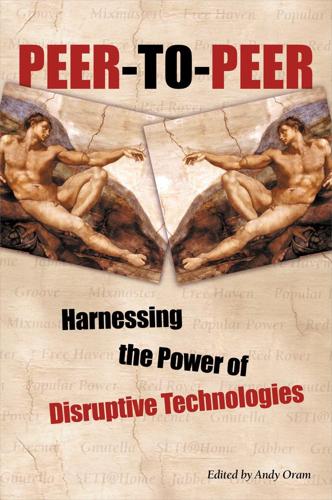
Peer-to-Peer
by
Andy Oram
Published 26 Feb 2001
Decentralization engenders a whole new area of network-related failures: unreliability, incorrect data synchronization, etc. Peer-to-peer designers need to balance the power of peer-to-peer models against the complications and limitations of decentralized systems. Abusing port 80 One of the stranger phenomena in the current Internet is the abuse of port 80, the port that HTTP traffic uses when people browse the Web. Firewalls typically filter traffic based on the direction of traffic (incoming or outgoing) and the destination port of the traffic. Because the Web is a primary application of many Internet users, almost all firewalls allow outgoing connections on port 80 even if the firewall policy is otherwise very restrictive.
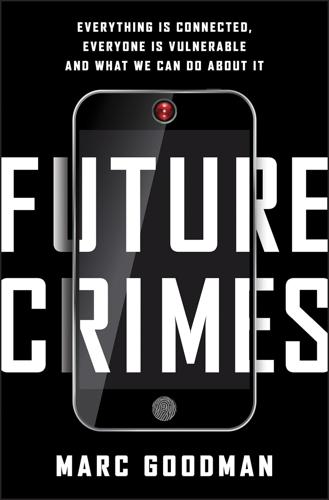
Future Crimes: Everything Is Connected, Everyone Is Vulnerable and What We Can Do About It
by
Marc Goodman
Published 24 Feb 2015
Smith, “Most ‘Hackable’ Vehicles Are Jeep, Escalade, Infiniti, and Prius,” Network World, Aug. 3, 2014. 36 In a nod: Ina Fried, “Tesla Hires Hacker Kristin Paget to, Well, Secure Some Things,” Re/code, Feb. 7, 2014. 37 “expected to reach”: Transparency Market Research, “Home Automation Market (Lighting, Safety and Security, Entertainment, HVAC, Energy Management)—Global Industry Analysis, Size, Share, Growth, Tends, and Forecast, 2013–2019,” Sept. 30, 2013. 38 Many such systems: Kashmir Hill, “When ‘Smart Homes’ Get Hacked: I Haunted a Complete Stranger’s House via the Internet,” Forbes, July 26, 2013. 39 A July 2014 study: Daniel Miessler, “HP Study Reveals 70 Percent of Internet of Things Devices Vulnerable to Attack,” HP, July 29, 2014. 40 Major toy makers: Arrayent, “Internet of Things Toys with Mattel,” http://www.arrayent.com/internet-of-things-case-studies/connecting-toys-with-mattet/Disney Research, “CALIPSO: Internet of Things.” http://www.disneyresearch.com/project/calipso-internet-of-things/. 41 But toys too can be subverted: Heather Kelly, “ ‘Smart Homes’ Are Vulnerable, Say Hackers,” CNN, Aug. 2, 2013. 42 They allow hackers to turn off: Dan Goodin, “Welcome to the ‘Internet of Things,’ Where Even Lights Aren’t Hacker Safe,” Ars Technica, Aug. 13, 2013. 43 Additional systems: Jane Wakefield, “Experts Hack Smart LED Light Bulbs,” BBC News, July 8, 2014; Leo King, “Smart Home?
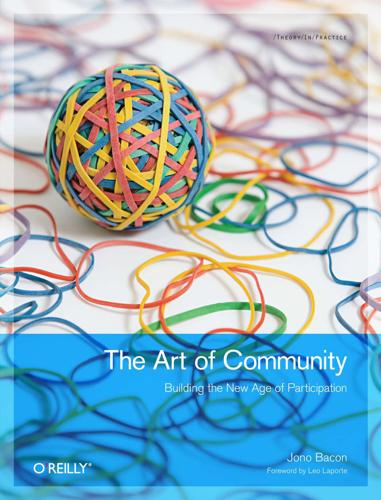
The Art of Community: Building the New Age of Participation
by
Jono Bacon
Published 1 Aug 2009
Then the door opened and a rather nice chap called Neil welcomed me into his home. Community is a funny beast. Most people—the kind who watch talent shows on television and occasionally dip bread in oil in an expensive restaurant—don’t understand people like Neil. Why on earth would this guy decide to open his home, free of charge, to a collection of strangers who met on the Internet? Why would he want to spend an evening drinking tea and making jokes about something called “Emacs”? And why would he fund online resources like fliers, a mailing list, and a website from his own pocket; start a book-lending service for the group—and even shell out for tea and biscuits?

Cuba Travel Guide
by
Lonely Planet
Then there’s the jiniteros (touts) who will try to squeeze money out of you any which way – maybe ‘offering’ to take you to the casa you’ve been searching for (it will transpire to be another one with almost certainly less-desirable facilities). Try to book your accommodation in advance, ideally arranging with the owners to meet you at the bus/train station/airport. And, particularly at these places, be wary of strangers approaching and soliciting ‘services’. Internet Access Etecsa Telepunto (República, btwn San Martín José Ramón Silva; internet per hr CUC$6) Internet and telephone access. Media The local newspaper Adelante is published every Saturday. Radio Cadena Agramonte broadcasts in the city over frequencies 910AM and 93.5FM; south of the city tune in to 1340AM, and north of the city, 1380AM.

Principles of Corporate Finance
by
Richard A. Brealey
,
Stewart C. Myers
and
Franklin Allen
Published 15 Feb 2014
Individuals with cash surpluses could take out newspaper advertisements or surf the net looking for those with cash shortages. But it can be cheaper and more convenient to use a financial intermediary, such as a bank, to link up the borrower and lender. For example, banks are equipped to check out the would-be borrower’s creditworthiness and to monitor the use of cash lent out. Would you lend money to a stranger contacted over the Internet? You would be safer lending the money to the bank and letting the bank decide what to do with it. Notice that banks promise their checking account customers instant access to their money and at the same time make long-term loans to companies and individuals. This mismatch between the liquidity of the bank’s liabilities (the deposits) and most of its assets (the loans) is possible only because the number of depositors is sufficiently large that the bank can be fairly sure that they will not all want to withdraw their money simultaneously.